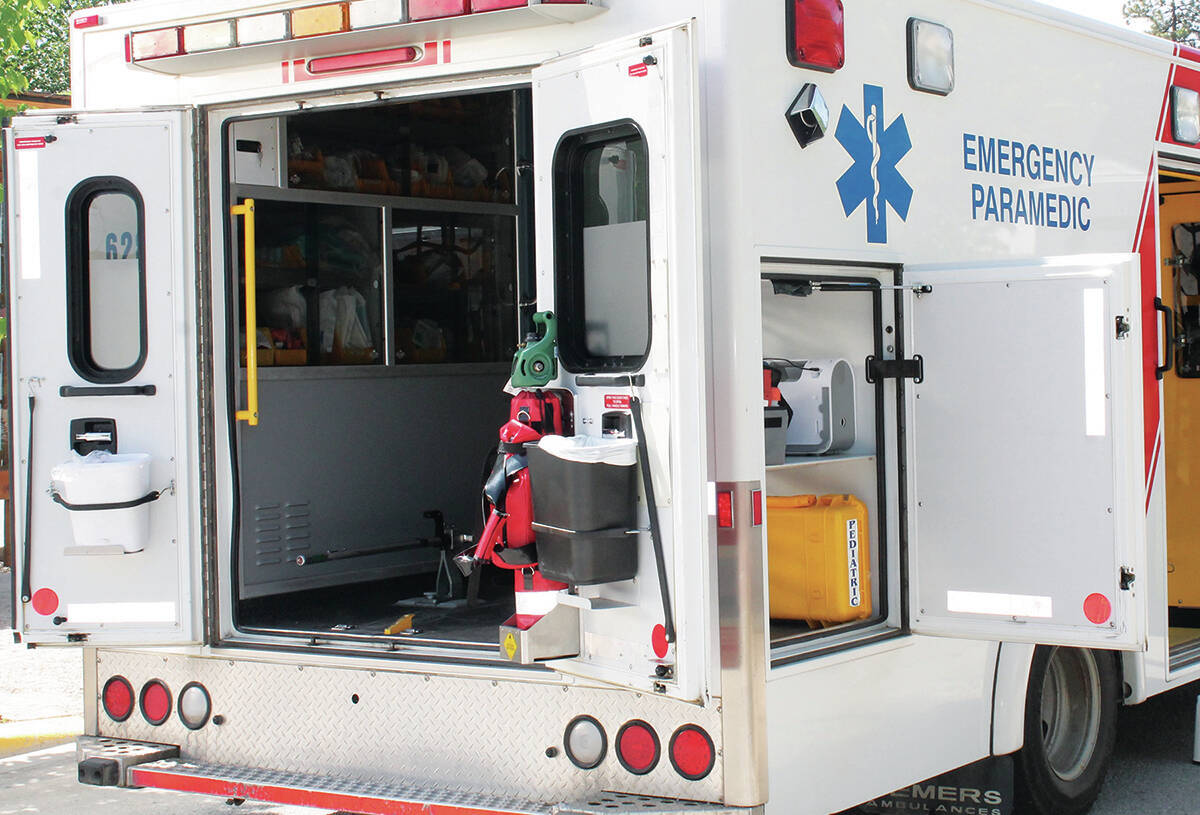The provincial government says $2 million in funding for the Justice Institute of British Columbia will help saves lives by expanding paramedics training.
But a senior institute leader says graduates from the paramedics training program are increasingly looking for jobs in the Lower Mainland and not rural B.C.
Minister of Post-Secondary Education and Future Skills Selina Robinson announced the funding Thursday afternoon in New Westminster.
It will help deliver the primary care paramedic certificate program to more than 100 students in Chilliwack, Kelowna, New Westminster, Trail and Victoria and emergency medical responder training to about 30 students in Cranbrook, Port Alberni and Prince George. The emergency medical responder training is a prerequisite for the primary care paramedic certificate program.
Robinson said nowhere is the labour shortage more acute than in the provincial health care system and the funding will create opportunities for individuals to start careers in emergency health care, leading to faster response times for British Columbians when they need it.
Justice Institute of British Columbia Health Sciences Division Director Kathy Harms said the funding will ease financial pressures on students, allowing them to concentrate on their intense studies. Kate Peer, a harm-reduction volunteer and primary-care paramedic student, said it means she won’t have to work a second job while preparing for her new career after working an office job with the federal government.
Ambulance Paramedics of B.C President Tory Clifford welcomed the funding in an interview with Black Press Media after the announcement. While details are outstanding, it will significantly help address labour shortages across the province, he said. Clifford added that the system could easily add anywhere between 1,000 and 1,500 paramedics over the next couple of years to fill current and future needs.
While B.C. Emergency Health Services faces a shortage of paramedics everywhere, the situation appears worse in rural and remote parts of British Columbia.
“We are needed anywhere in the province, but a lot of these (additional paramedics) are needed in rural and remote communities,” Clifford said. One of the advantages of the funding is adding training opportunities in some of the areas where paramedics are most needed, he said.
Harms said jobs are available everywhere in the province, but acknowledged it is more difficult to fill jobs in rural areas.
RELATED: Ultrasound clinic opened at Greater Victoria college to help ease waitlists
Clifford agreed. “The volume and positions are in (Metro) Vancouver,” he said. By allowing future parademics to train where they live rather than having to move to the Lower Mainland will help with recruitment down the line. “Hopefully, that is going keep those people in those ommunities as opposed to moving to Metro (Vancouver),” he said.
Robinson said cabinet is continuously monitoring whether it needs to create financial incentives for paramedics to fill jobs in rural and remote areas.
A new report from the Greater Vancouver Board of Trade calls on the provincial government to make it easier for individuals trained in other parts of Canada or abroad to enter the provincial workforce, especially the health care sector, among other measures, including additional investments in skills.
Robinson said the report’s findings match provincial assessments, which show B.C. will have one million job openings by 2030, including 140,000 in the health care system as the baby boom generation retires.
“It’s very much what we are hearing,” she said, adding that she looks forward to working with GVBOT to address the looming labour shortage in the province.
@wolfgangdepner
wolfgang.depner@blackpress.ca
Like us on Facebook and follow us on Twitter.

